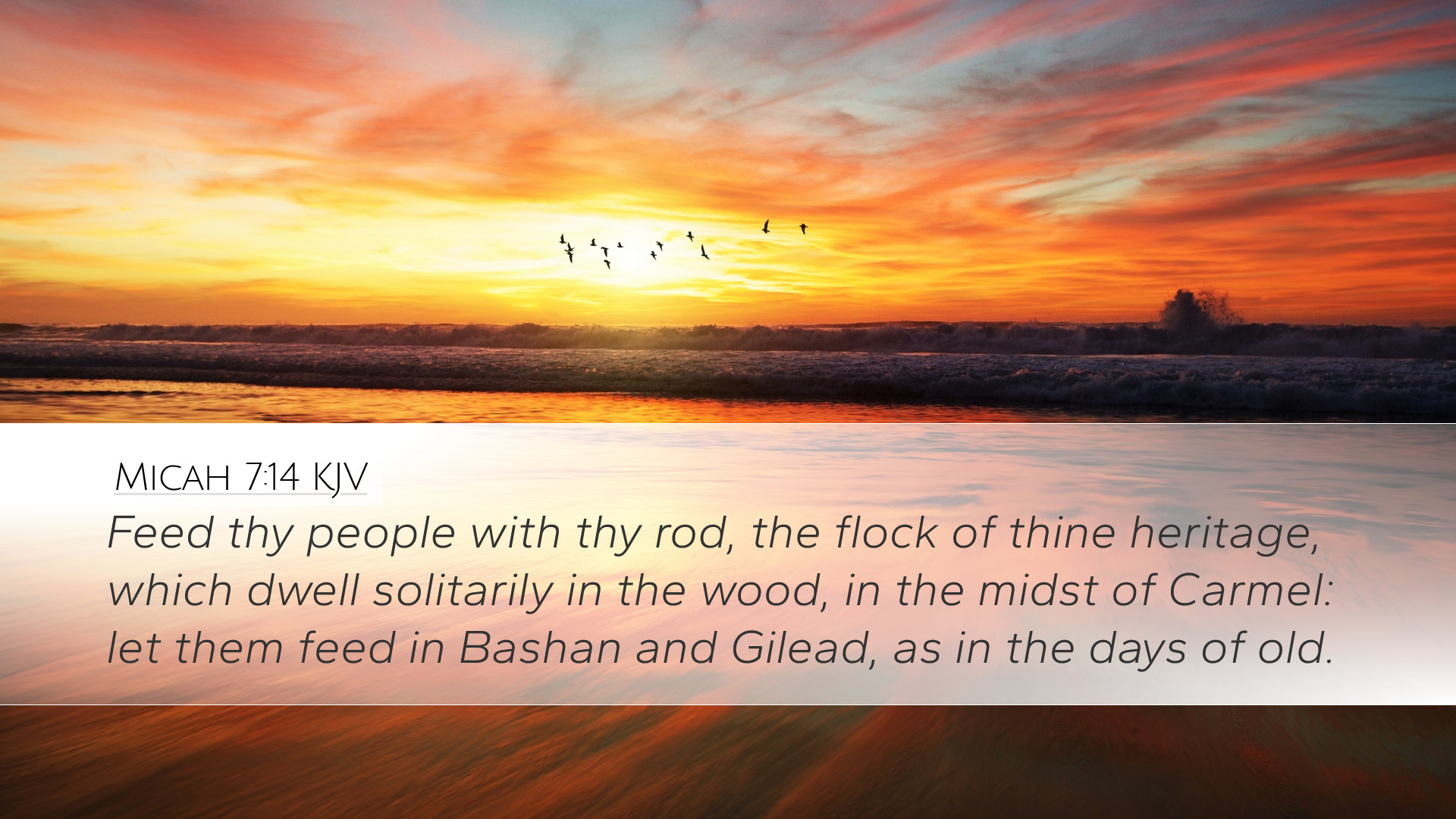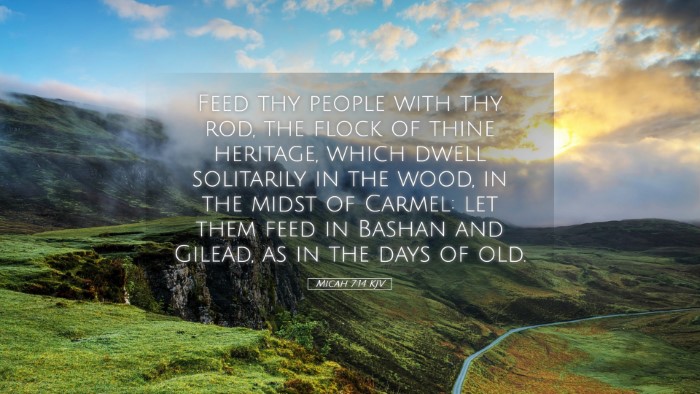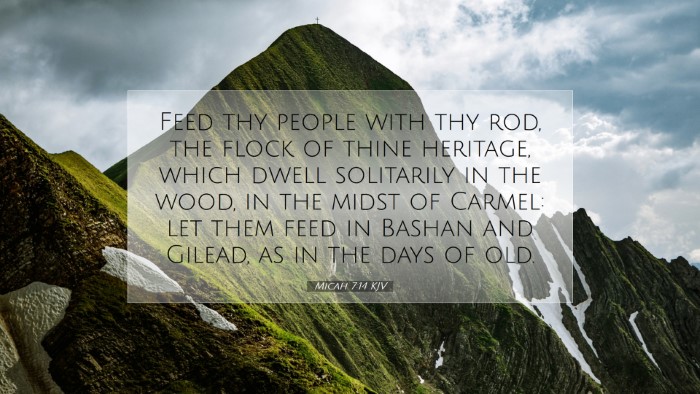Old Testament
Genesis Exodus Leviticus Numbers Deuteronomy Joshua Judges Ruth 1 Samuel 2 Samuel 1 Kings 2 Kings 1 Chronicles 2 Chronicles Ezra Nehemiah Esther Job Psalms Proverbs Ecclesiastes Song of Solomon Isaiah Jeremiah Lamentations Ezekiel Daniel Hosea Joel Amos Obadiah Jonah Micah Nahum Habakkuk Zephaniah Haggai Zechariah MalachiMicah 7:14
Micah 7:14 KJV
Feed thy people with thy rod, the flock of thine heritage, which dwell solitarily in the wood, in the midst of Carmel: let them feed in Bashan and Gilead, as in the days of old.
Micah 7:14 Bible Commentary
Commentary on Micah 7:14
Micah 7:14 presents a poignant plea from the prophet Micah, addressed to God. The verse states:
"Shepherd Your people with Your staff, the flock of Your inheritance, who dwell solitarily in a woodland, in the midst of Carmel."
Contextual Analysis
The Book of Micah is primarily concerned with social justice, divine judgment, and restoration. Micah, a contemporary of Isaiah, prophesies during a turbulent period in Israel's history, where moral decay and social injustice permeate society. Thus, the plea for divine shepherding in this verse arises from a context of spiritual and physical peril.
Theological Insights
This verse can be unpacked in several layers of theological significance:
-
The Nature of God as Shepherd:
Both Henry and Clarke emphasize the metaphor of God as a shepherd, a symbol deeply rooted in biblical theology. This metaphor expresses the care, guidance, and provision God offers to His people. Micah's request signifies a profound acknowledgment of human need and divine capability.
-
Flock of Your Inheritance:
The phrase "the flock of Your inheritance" denotes the special relationship between God and His people. Barnes elucidates that Israel is regarded not merely as a nation but as God's cherished possession, emphasizing their value and the responsibilities that come with it.
-
Loneliness and Desolation:
The imagery of dwelling "solitarily in a woodland" points towards the isolation experienced by God's people, particularly in the context of exile or spiritual abandonment. Henry highlights that this isolation underscores the need for spiritual nourishment that only God, as the shepherd, can provide.
Exegetical Observations
Analyzing the original Hebrew can provide deeper insights into the richness of this verse:
-
Hebrew Terms:
The term for shepherd used here (רָעָה) conveys the dual role of leading and feeding. Clarke notes this duality as essential, as it speaks to God’s provision in sustenance and direction for His people towards holiness and righteousness.
-
Imagery of Wilderness:
The reference to “woodland” and “Carmel” denotes geographical and spiritual realities. Carmel represents beauty and abundance, a stark contrast to the squalor of the wilderness. This juxtaposition signifies the hope that God can bring His people from desolation to a place of abundance.
Pastoral Applications
This verse has profound implications for ministry and pastoral care:
-
Encouragement in Spiritual Leadership:
Pastors and spiritual leaders are reminded of their role as under-shepherds. They are called to reflect God’s heart for His people, providing guidance, nourishment, and protection as they navigate spiritual wilderness.
-
Comfort for the Lonely:
The image of God as a shepherd is particularly comforting for those feeling isolated in their spiritual journey. Ministers can draw from this imagery to offer hope, emphasizing that God is always present and ready to guide those who feel lost.
Concluding Thoughts
Micah 7:14 encapsulates the heart of the Gospel message — the desire for God to shepherd His people through difficult times. By drawing upon the rich insights from public domain commentaries, we grasp the depth of this verse, which encapsulates themes of divine care, human need, and the hope of restoration. As we engage with these texts, may we be inspired to pursue the heart of the shepherd in our own lives and ministries.


